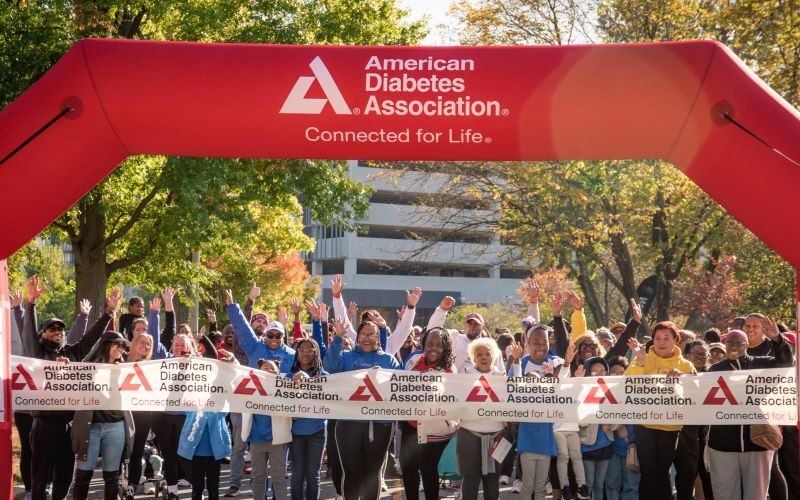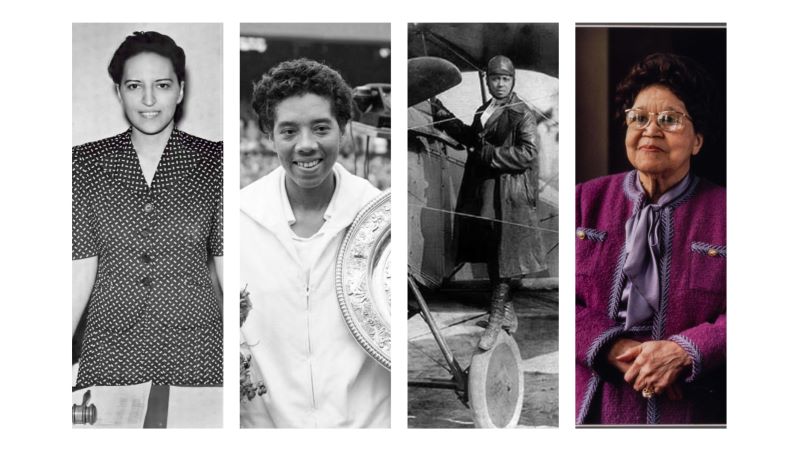The American Diabetes Association and Dominique Gwaltney bring prevention tools and awareness straight to neighborhoods most at risk.
For many in the Philadelphia region, diabetes is an urgent health concern because it’s part of daily life. And yet, despite its widespread reach, awareness and understanding remain dangerously low in the Black community.
Diabetes affects more than 37 million people in the United States but its real impact is far greater. It reaches into homes, workplaces, and communities, often quietly and without warning.
This is where the American Diabetes Association’s (ADA) Greater Philadelphia steps in as a trusted resource.
Led by a small but mighty team, the chapter ensures that individuals and families, especially those in Black and underrepresented communities get the education, resources, and support they critically need. Their mission goes beyond clinical facts. It’s about meeting people where they are and empowering them to take action before it’s too late.
At the center of this outreach effort is Dominique Gwaltney, MBA, a development manager and dedicated advocate. Her role with the ADA is not simply administrative; she is a storyteller, a connector, and often the pivotal first point of contact for individuals seeking help or seeking to give it.


“We know diabetes is deeply affecting our communities, especially Black and Brown families,” Gwaltney says. “But the knowledge gap is still wide. People say: ‘My sugar is high,’ without understanding the full scope of what that means. That’s the education gap we’re trying to close.”
Reaching the Public Through Community Events
One of the chapter’s signature initiatives is the Step Out®: Philadelphia, held annually in Philadelphia. More than just a fundraiser, the walk is a moment of visibility, unity, and advocacy. Participants, many of whom are living with type 1, type 2, or gestational diabetes, gather with family, friends, and healthcare professionals to provide awareness and a shoulder of support.
“The Step Out Walk brings it all together,” says Gwaltney. “We see people come out not just to walk, but to talk, to share stories, to learn. It’s a moment of solidarity.”
This year’s event is Saturday, November 8 during the observance of American Diabetes Month at the Philadelphia Navy Yard in South Philadelphia
Registration is free and open to all. Participants can join individually or as part of a team. While donations are encouraged, especially to help fund research and education, the walk ultimately is a tool for outreach and connection.
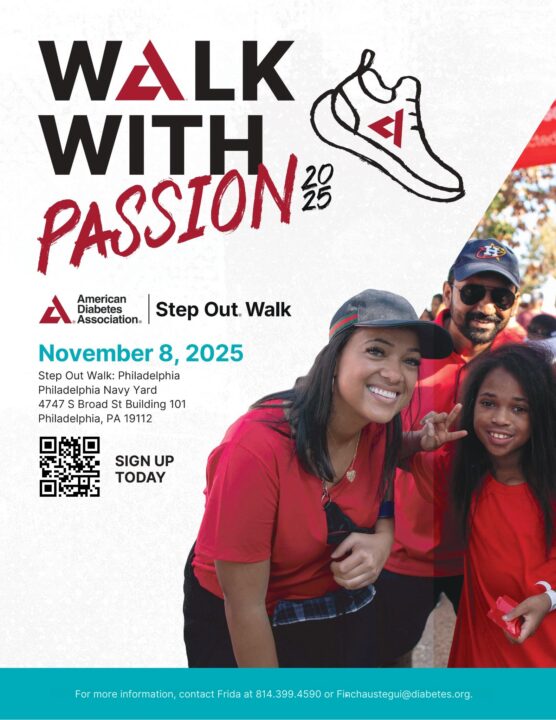

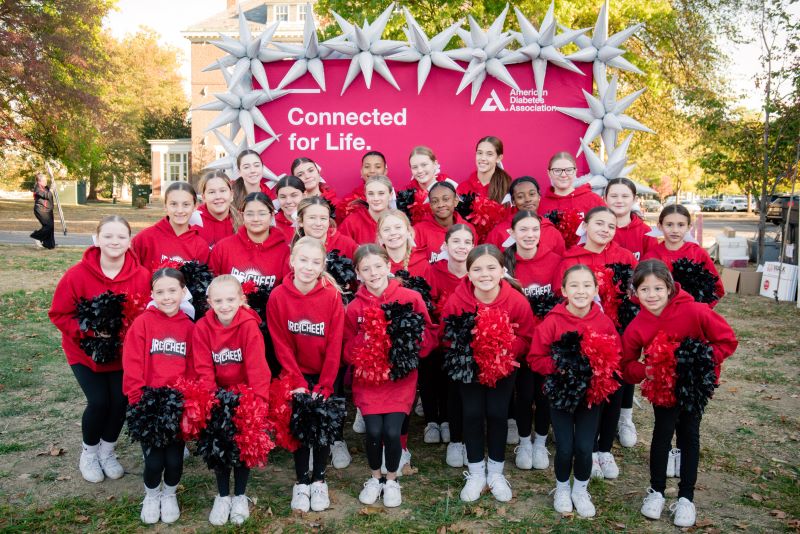
Expanding Impact Through Partnerships and Employers
In addition to the walk, the chapter leads the State of Diabetes forum, a program aimed at employers and workplace wellness coordinators. These events offer evidence-based guidance on how to support employees managing diabetes or at risk of developing it.
“It’s important that diabetes advocacy doesn’t stop at the clinic door,” says Gwaltney. “We’re helping organizations see how health impacts their people and their productivity and giving them tools to respond.”
The chapter also works with faith-based groups, local nonprofits, and neighborhood leaders to expand its reach. This decentralized model is designed to recognize that trust and communication often begin at the grassroots community level.
The Need Is Urgent
Behind the human impact can be measured in the numbers:
- 1 in 3 adults in the U.S. has pre-diabetes, and most don’t know it.
- Every 26 seconds, someone is diagnosed with diabetes.
- Diabetes is a leading cause of blindness, amputation, and kidney failure, yet it is often preventable or manageable with early intervention.
These aren’t just statistics; they represent real people in our neighborhoods who are at risk because they lack access to information, testing, or treatment. Some are hesitant to address health issues in general. The ADA’s work is about breaking that cycle.
Dominique Gwaltney: Point of Contact and Community Ally
Those interested in learning more, scheduling a presentation, or forming a Step Out Walk team can connect directly with Dominique Gwaltney at the ADA’s Greater Philadelphia. She serves as both a resource and a relationship builder for individuals, faith groups, businesses, and organizations that want to be part of the change.
“We’re here, and we’re local,” she says. “We want to work with anyone ready to spread awareness, share resources, or simply start the conversation.”
| For more information or to get involved, visit www.diabetes.org/stepoutphilly To contact Dominique Gwaltney or inquire about ADA programming, email: dgwaltney@diabetes.org |
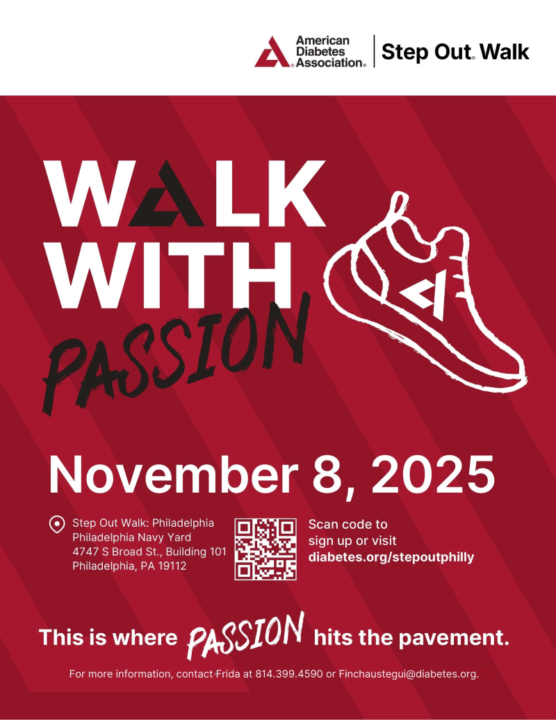

Dr. Eric John Nzeribe is the Publisher of FunTimes Magazine and has a demonstrated history of working in the publishing industry since 1992. His interests include using data to understand and solve social issues, narrative stories, digital marketing, community engagement, and online/print journalism features. Dr. Nzeribe is a social media and communication professional with certificates in Digital Media for Social Impact from the University of Pennsylvania, Digital Strategies for Business: Leading the Next-Generation Enterprise from Columbia University, and a Master of Science (MS) in Publication Management from Drexel University and a Doctorate in Business Administration from Temple University.

